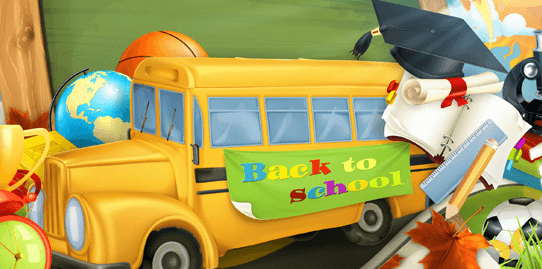clipart:_uexxcvpibu= school

Schools are integral to society, serving as essential institutions for education and personal development. They provide a structured environment where students acquire knowledge, develop skills, and prepare for future challenges. clipart:_uexxcvpibu= school are key to fostering social interaction, discipline, and a passion for learning. Their role in nurturing young minds and supporting community growth is crucial.
Evolution of Educational Systems
Education has undergone significant transformation from its early origins. Initially focused on basic literacy and numeracy, educational practices have expanded to include a wide range of subjects and methodologies. Major milestones in education include the establishment of formal educational institutions and the development of comprehensive curricula. Understanding this evolution offers insight into the complexities of modern education systems and their historical foundations.
Various School Models
Different types of schools cater to diverse educational needs and preferences. Public schools, funded by the government, are available to all students. Private schools often provide specialized curricula and can offer smaller class sizes. Charter schools, which operate with more flexibility, and online schools, which offer remote learning opportunities, each have their unique advantages and challenges. These educational models address a wide range of student needs and learning styles.
Curriculum Design in Schools
A school’s curriculum is designed to provide a balanced education, covering core subjects like mathematics, science, and language arts, as well as electives such as art and music. In addition to academic subjects, extracurricular activities like sports and clubs play a vital role in student development. A well-structured curriculum promotes intellectual growth and prepares students for future educational and career paths.
Roles of School Administrators
School administration is crucial for the effective functioning of educational institutions. Administrators, including principals and vice principals, are responsible for overseeing school operations, including curriculum development, staff management, and student support. Their leadership is vital for maintaining a positive educational environment and ensuring that the school’s objectives are met.
Contributions of Educators and Staff
Teachers and school staff are fundamental to the educational experience, impacting student learning and success. They bring expertise, enthusiasm, and dedication to their roles, guiding students through their academic journeys. Effective educators not only provide instruction but also help shape students’ values and life skills, contributing to their overall development.

Here’s a revised version of the content with unique headings and content:
Overview of Schools
Schools are integral to society, serving as essential institutions for education and personal development. They provide a structured environment where students acquire knowledge, develop skills, and prepare for future challenges. Schools are key to fostering social interaction, discipline, and a passion for learning. Their role in nurturing young minds and supporting community growth is crucial.
Evolution of Educational Systems
Education has undergone significant transformation from its early origins. Initially focused on basic literacy and numeracy, educational practices have expanded to include a wide range of subjects and methodologies. Major milestones in education include the establishment of formal educational institutions and the development of comprehensive curricula. Understanding this evolution offers insight into the complexities of modern education systems and their historical foundations.
Various School Models
Different types of schools cater to diverse educational needs and preferences. Public schools, funded by the government, are available to all students. Private schools often provide specialized curricula and can offer smaller class sizes. Charter schools, which operate with more flexibility, and online schools, which offer remote learning opportunities, each have their unique advantages and challenges. These educational models address a wide range of student needs and learning styles.
Curriculum Design in Schools
A school’s curriculum is designed to provide a balanced education, covering core subjects like mathematics, science, and language arts, as well as electives such as art and music. In addition to academic subjects, extracurricular activities like sports and clubs play a vital role in student development. A well-structured curriculum promotes intellectual growth and prepares students for future educational and career paths.
Roles of School Administrators
School administration is crucial for the effective functioning of educational institutions. Administrators, including principals and vice principals, are responsible for overseeing school operations, including curriculum development, staff management, and student support. Their leadership is vital for maintaining a positive educational environment and ensuring that the school’s objectives are met.
Contributions of Educators and Staff
Teachers and school staff are fundamental to the educational experience, impacting student learning and success. They bring expertise, enthusiasm, and dedication to their roles, guiding students through their academic journeys. Effective educators not only provide instruction but also help shape students’ values and life skills, contributing to their overall development.
Impact of Classroom Settings
The classroom environment greatly influences student engagement and learning outcomes. Well-organized and resource-equipped classrooms, complemented by modern technology, enhance the educational experience. A positive and inclusive classroom atmosphere encourages participation and fosters a sense of community, supporting diverse learning styles and academic success.
Experiences of Student Life
Student life encompasses various aspects of school experiences, including daily routines, involvement in clubs, and participation in sports. These activities are essential for developing skills such as teamwork, leadership, and time management. A dynamic student life contributes to a well-rounded education and makes the school experience more enjoyable and fulfilling.
Read Also clipart:8ph6q0ltrde= horse
Importance of Parental Engagement
Parental involvement is key to student achievement, creating a supportive home environment that reinforces school efforts. Parents can contribute by volunteering, attending school events, and supporting their children’s learning. Active engagement from parents positively affects student motivation and academic performance, strengthening the partnership between home and school.
Educational Challenges
Education systems face numerous challenges, such as budget constraints, the pressures of standardized testing, and issues of equity. These challenges impact the quality of education and access to resources. Addressing these issues requires collaborative efforts from educators, policymakers, and communities, focusing on equitable solutions and inclusive practices to support all students.
Advancements in Education
Educational innovations, including the integration of technology, new teaching methodologies, and personalized learning approaches, are transforming the learning experience. These advancements cater to individual student needs and enhance engagement. Embracing innovative practices prepares students for the demands of a rapidly changing world, fostering critical thinking and adaptability.
Ensuring School Safety
School safety is a top priority, involving policies and procedures for preventing bullying, managing emergencies, and safeguarding student well-being. Implementing effective safety measures helps create a secure learning environment, builds trust among students and families, and contributes to a positive school culture. Proactive safety initiatives are essential for ensuring a supportive educational experience.
Schools and Their Communities
Schools play a crucial role in their communities, fostering partnerships and organizing events that encourage community involvement. Collaboration between schools and local communities enhances educational experiences and provides additional support and resources. Strong school-community relationships contribute to civic engagement and enrich the overall educational environment.
Comparative Global Education
Examining education systems from around the world reveals diverse teaching methods, curricula, and assessment practices. These global perspectives reflect different cultural values and educational goals. Understanding these variations can highlight best practices and areas for improvement, fostering discussions on educational reform and enhancing learning experiences worldwide.
Frequently Asked Questions
What are the benefits of different school types?
Different school types offer unique advantages that cater to various educational needs and learning preferences.
How does parental involvement influence student outcomes?
Active parental involvement supports student motivation and academic success, creating a collaborative learning environment.
What are the current challenges in education?
Challenges include funding limitations, standardized testing pressures, and equity issues, which impact educational quality and access.
How do educational innovations benefit students?
Innovations like technology integration and personalized learning enhance student engagement and address individual needs.
What role do schools play in their communities?
Schools foster community engagement and partnerships, enriching the educational experience and promoting civic involvement.
Conclusion
clipart:_uexxcvpibu= school are essential institutions that contribute significantly to individual and community development. They provide a structured framework for education, fostering academic, social, and personal growth. As education continues to evolve, schools remain at the heart of preparing future generations for a complex and dynamic world.





